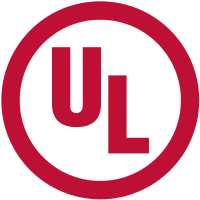Brand Protection and Supply Chain Security Audits
Securing the supply chain has never been more important. UL's brand protection and supply chain audits help businesses work together with confidence across the globe, meet rigorous regulatory demands, and protect against counterfeiting and gray market diversion. Definition From Customs-Trade Partnership Against Terrorism (C-TPAT) services to in-person inspections at the factory, UL's brand protection and supply chain security auditing services help business manage the global supply chain, mitigate risk and comply with regulatory requirements. Benefits UL's brand protection and supply chain security auditing services aim to reduce complexity and reduce costs and damages associated with doing business in today's global market. Our services include C-TPAT compliance assistance, brand protection and traceability assessments as well as destruction verification visits. From Fortune 500 companies to family-owned businesses, we help customers successfully apply for C-TPAT certification within the United States and Mexico. Our facility vulnerability assessments are cutting edge, incorporating the latest recommendations by the U.S. Bureau of Customs and Border Protection. Our C-TPAT security vulnerability process pinpoints weaknesses and benchmarks these against country and global performance, allowing our customers to mitigate security risk throughout their supply chain. Data is provided via our FaST decision-making tool, which provides at-a-glance information on grading areas and benchmark comparisons at regional and global levels. Historical data regarding specific facility security audits is supplied so customers can track and document progress in complying with C-TPAT standards. Brand protection assessments evaluate risk at a factory level to help ensure brand materials are secured and inventoried, and ensure protection procedures are in place to control overruns, defects, branded components and sell-off goods. Our brand protection services help customers reduce loss through proactive enforcement of best practices aimed at reducing the risk of goods being distributed to unauthorized suppliers. Traceability assessments investigate the source of raw materials used in a product. Destruction verification visits utilize third-party auditors to collect evidence that goods or branded components are destroyed rather than being distributed to outside parties.Visit the UL International (UK) Ltd website for more information on Brand Protection and Supply Chain Security Audits






